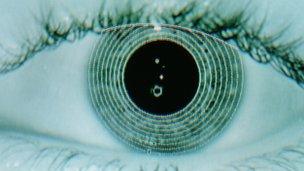Web surveillance plans create 'nation of suspects'
- Published

The proposals will give law enforcement real time access to web and phone records
Government proposals to extend powers to watch what people do online would create a "nation of suspects", said MP David Davis.
The former shadow home secretary said the government should be restricting surveillance, not trying to extend it.
Powers granted to police that let them see personal data without a warrant should be rolled back, he said.
Others warned the proposals risked undermining fundamental social ties necessary for a civil society.
The comments were made during a debate on the plans held at the London School of Economics on Thursday.
The Scrambling for Safety conference brought together academics, politicians, computer security experts and the public to debate the current proposals.
The Home Office defended the proposals saying: "It is vital that police and security services are able to obtain communications data in certain circumstances to investigate serious crime and terrorism and to protect the public."
'Resisted completely'
Mr Davis - a Conservative backbencher - dubbed the government's plans a "snooper's charter". He said they were a product of ministerial ignorance about both technology and the scale of the terrorist threat facing the UK.
He said the government proposals would put everyone under suspicion and should be "resisted completely".
If the proposals were enacted, he said, they would only hit the innocent and would be easily avoided by those who were "sufficiently sophisticated" to know about the measures and take action to stay hidden.
The potential for the browsing and calling habits of an entire nation to be put under surveillance were within grasp, said Dr Ross Anderson from the University of Cambridge computer science department.
The plummeting cost of storage meant that it was becoming possible to contemplate storing and searching all the electronic communications of a developed nation such as the UK.
Shami Chakrabarti, director of Liberty, added to the warnings and said reassurances about the innocent having nothing to fear had to be set against what the innocent had to be protect - namely their dignity and right to privacy.
History gave stark lessons about the consequences of putting an entire nation under surveillance, she said. She said day-to-day scrutiny risked dissolving the social ties that a civil society relied on to function.
"It's crystal clear to us that it's not just an unethical measure for any democracy, it's absolutely unlawful under article 8 of the European Convention on Human Rights."
However, a Home Office spokeswoman told the BBC: "We need to take action to maintain the continued availability of communications data as technology changes.
"Communications data has played a role in every major Security Service counter-terrorism operation over the past decade and in 95% of all serious organised crime investigations. It is vital to law enforcement, especially when dealing with organised crime gangs, paedophile rings and terrorist groups."
- Published18 April 2012
- Published10 April 2012
- Published2 April 2012
- Published2 April 2012
- Published1 April 2012